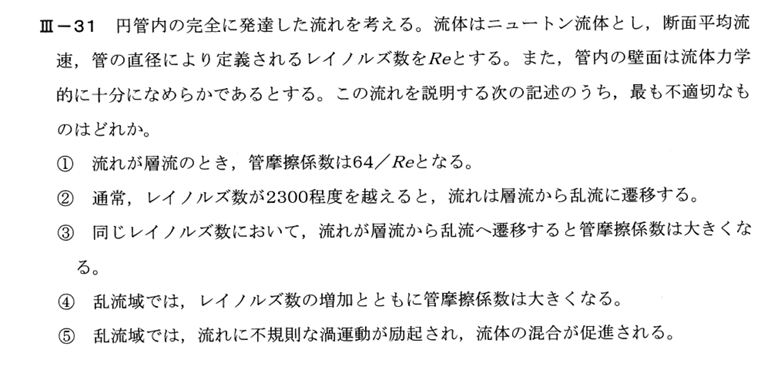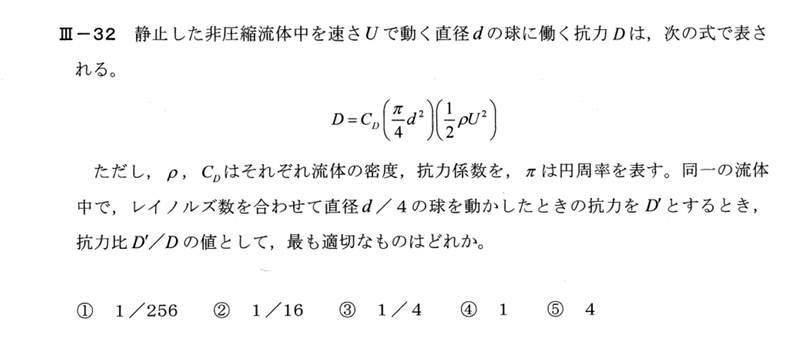数百万ダウンロードされたコードがユーザーのファイルを核攻撃すると、悪いことが起こる可能性があります。
ある開発者が、人気のあるオープンソースパッケージに悪意のあるコードを追加し、ロシアとベラルーシのコンピュータ上のファイルを消去したことが発覚し、多くのユーザーを激怒させ、フリーおよびオープンソースソフトウェアの安全性について懸念を抱かせる抗議の一端となりました。
このアプリケーション「node-ipc」は、他のオープンソースコードライブラリに、リモートプロセス間通信とニューラルネットワーキング機能を追加するものです。依存関係として、node-ipcは自動的にダウンロードされ、他のライブラリに組み込まれます。その中には、毎週100万件以上ダウンロードされているVue.js CLIのようなライブラリも含まれます。
意図的で危険な行為
2週間前、node-ipcの作者は、ウクライナに侵攻し、侵攻を支援しているロシアとベラルーシのコンピュータに妨害工作を行うライブラリの新バージョンをプッシュしました。新リリースでは、自分のプロジェクトでnode-ipcを使用した開発者のIPアドレスをチェックする機能が追加されました。IPアドレスがロシアかベラルーシのどちらかに位置している場合、新バージョンはマシンからファイルを消去し、ハートの絵文字に置き換えた。
node-ipcの作者であるBrandon Nozaki Miller氏は、悪意を隠すために、変更点をbase64エンコードし、問題を確認するために目視で確認しようとするユーザーにとってやりにくくなるようにしました。
これが、その開発者たちが見たものです。
これらの行は、次のようなタイマー関数に渡されました。
Base64文字列の値は次のとおりです。
タイマー関数に渡されると、その行はファイルを消去し、ハートの絵文字に置き換えるための入力として使用されました。
「この時点で、この npm パッケージが呼び出されたシステムが、ロシアかベラルーシのいずれかの地理的位置に一致する場合、非常に明確な不正利用と重要なサプライチェーンのセキュリティ事故が発生します」と、この変更を追跡して水曜日にその結果を発表したセキュリティ企業 Snyk の研究者 Liran Tal は書いています。
タル氏は、node-ipcの作者が他の40のライブラリを保守しており、その一部または全部が他のオープンソースパッケージの依存関係になっていることを発見しました。タル氏は、node-ipc作者のハンドルネームに言及し、この抗議の知恵と、オープンソースのエコシステム全体への影響に疑問を呈した。
"たとえメンテナRIAEvangelistの意図的で危険な行為が正当な抗議行動と受け止められるとしても、それはメンテナの今後の評判や開発者コミュニティでの利害にどう反映されるのでしょうか?" とTalは書いています。"このメンテナは、今後、参加するプロジェクトに対して、このような、あるいはさらに攻撃的な行為を追わないよう、二度と信頼されることはないでしょうか?"
RIAEvangelistもTwitterやオープンソースのフォーラムで非難を浴びました。
「これは、Teslaが意図的に特定のドライバーを検出するコードを入れて、彼らが漠然と説明に一致する場合、それらを最も近い電柱に自動運転し、特定のドライバーだけを罰することを望むようなものだ」とある人は書いています。また、「削除されたファイルが、実は他の人を殺す可能性のあるミッションクリティカルなものだったら?
プロテストウェアの登場
node-ipcのアップデートは、一部の研究者がプロテストウェアと呼んでいるものの一例に過ぎません。専門家は、ロシアの戦争の残虐性を訴えるアップデートをリリースしている他のオープンソースプロジェクトを追跡し始めています。このスプレッドシートには、影響を受ける21の個別パッケージがリストアップされています。
その1つが、ECMAScript 6スクリプト言語仕様のコードを提供するes5-extパッケージです。開発者が3月7日に追加したpostinstall.jsという新しい依存関係は、ユーザーのコンピューターにロシアのIPアドレスがあるかどうかをチェックし、その場合、コードは "平和への呼びかけ "をブロードキャストしている。
"ウクライナの人々は完全に動員され、敵の侵略から国を守る準備ができています。"英語に翻訳されたメッセージは、その一部を読み取ることができます。"ウクライナ人の91%がヴォロディミル・ゼレンスキー大統領とロシアの攻撃に対する彼の対応を完全に支持している"。以下は、そのコードの断片である。
プロテストウェアは、何百、何千ものアプリケーションを実行するために重要なコードを、ボランティアの開発者たちが作成した場合のリスクの一端を露呈している。オープンソースソフトウェアの中には、自動的に新しい依存性バージョンをダウンロードして組み込むものもありますが、そうでないものでも、膨大な量のコードによって手作業によるレビューが不可能になることがよくあります。つまり、一個人のアップデートが、下流の膨大な数のアプリケーションを混乱させる可能性があるのです。
This risk was on full display in January, when the developer of two JavaScript libraries with more than 22 million downloads pushed an update that caused more than 21,000 dependent apps to spew gibberish, prefaced by the words “Liberty Liberty Liberty.” An infinite loop produced by the update sent developers scrambling as they attempted to fix their malfunctioning apps.
The disk-wiping function was added to node-ipc versions 10.1.1 and 10.1.2. Following the outcry over the wiper, the developer released updates that removed the malicious function. Snyk recommends that developers stop using the package altogether. If that’s not possible, the company advises the use of an npm package manager to override the sabotaged versions and pin a known good version.
“Snyk stands with Ukraine, and we’ve proactively acted to support the Ukrainian people during the ongoing crisis with donations and free service to developers worldwide, as well as taking action to cease business in Russia and Belarus,” Tal wrote. “That said, intentional abuse such as this undermines the global open source community and requires us to flag impacted versions of node-ipc as security vulnerabilities.”
Post updated to remove comments making unverified claims and to correct a statement about default open source behavior towards dependency updates.
Promoted Comments
jg67379 Wise, Aged Ars Veteran et Subscriptor
JUMP TO POST
Ripaille wrote:
I disagree with the article that the issue is about FOSS. The issue is with developers not testing / auditing the code they import - which they can do better if it's FOSS.
We've seen backdoors and malware in closed-source software many times. Some countries prevent critical infrastructure from network equipment with Chinese-made operating systems for example.
Its not really feasible to manually audit all of the code you import. Your dependencies probably have 10s or 100s of time more code than your actual project you are writing. Especially when considering the dependencies of your dependencies...
You should obviously do some due diligence before adding/installing a new dependency though.
That said I feel like node and NPM are especially bad in the number of dependencies a typical project has compared to other languages like Python or Go.
このリスクは、1月に2200万ダウンロードを超える2つのJavaScriptライブラリの開発元がアップデートを行った際に、21,000以上の依存アプリが "Liberty Liberty "という言葉を前置きにして、ちんぷんかんぷんな言葉を吐き出すようになったことからも明らかである。このアップデートで発生した無限ループにより、開発者は誤動作するアプリを修正しようと奔走した。
ディスクワイプ機能は、node-ipcのバージョン10.1.1と10.1.2に追加されました。このワイパーをめぐる騒動を受けて、開発元は悪意のある機能を削除したアップデートをリリースしました。Snykは、開発者に対して、このパッケージの使用を完全に停止することを推奨しています。それが不可能な場合は、npmパッケージマネージャを使用して、妨害されたバージョンを上書きし、既知の良いバージョンを固定することを勧めています。
「Snyk はウクライナと共に立ち上がり、現在進行中の危機の中でウクライナの人々を支援するために、寄付や世界中の開発者への無料サービス、またロシアやベラルーシでのビジネス停止措置を積極的に行っています」と Tal は書いています。"つまり、このような意図的な乱用は、グローバルなオープンソースコミュニティを弱体化させ、影響を受けるバージョンのnode-ipcにセキュリティ脆弱性としてフラグを立てる必要があります。"
検証されていない主張をするコメントを削除し、依存関係の更新に対するデフォルトのオープンソースの動作についての記述を修正するため、投稿を更新しました。
推進されたコメント
jg67379 賢者、高齢のアルスベテランと添え字師
投稿へジャンプ
Ripaille さんが書き込みました。
FOSSが問題だという記事には反対です。問題は、開発者がインポートしたコードをテスト/監査しないことです - それがFOSSであれば、もっとうまくできます。
クローズドソースのソフトウェアにバックドアやマルウェアがあることは何度も見てきました。例えば、中国製のオペレーティングシステムを搭載したネットワーク機器から重要なインフラを防ぐ国もあります。
インポートするすべてのコードを手作業で監査するのは現実的ではありません。おそらく、あなたが書いている実際のプロジェクトよりも、あなたの依存関係の方が何十倍も何百倍も多くのコードを持っているはずです。特に、依存関係の依存関係を考慮すると...。
新しい依存関係を追加/インストールする前に、明らかにいくつかのデューデリジェンスを行う必要があります。
とはいえ、PythonやGoのような他の言語と比較して、典型的なプロジェクトが持つ依存関係の数において、nodeとNPMは特にひどい気がします。
<おすすめ記事>
・【科学が証明】第二言語習得論 このおすすめの学習ツールで英語をマスターする
・【株式投資でマネーマシンを作る】管理人のポートフォリオ・スペック
(管理人は米国株式に投資をしているので、英語学習をするようになりました。勉強をする意義があると継続できるし、苦痛が少なくて済むとおもいます)
・テスラの蓄電池(パワーウォール)について
・“Play-to-earn”ゲームはポンジスキームだ!!!





